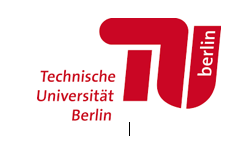Berlin – The number of people living in urban areas in China exceeded 50% for the first time in 2012. By 2017, this had reached as much as 58% and in approximately the next 13 years, a further 300 million people are expected to be residing in cities. This will mean that more than one billion people will be living in urban areas.
The rapid process of urbanization and the changes this brings for society, the economy and technology are decisive drivers in the development of China; at the same time they represent enormous challenges for the country’s society as a whole.
Today, we are already seeing that a development so strongly focused on cities leads to many societal, economic and environmental problems, with an ever increasing number of people in megacities living without sustainable access to urban infrastructures.
At the same time, extensive processes of urbanization are causing ever greater damage to the environment. The economic growth of cities and their increased urbanization are resulting in an ongoing shrinkage of rural regions in spatial, social and economic terms, often with drastic consequences.
In light of these developments, the disciplines of urban planning and urban research have, until now, mainly focused on the sustainable development of megacities and their inner city areas. Current smart city discussions are also largely influenced by this approach and guided by a strong focus on sustainable aspects of urban centers in terms of technology and inner cities.
The “SPURT- Sustainable Processes of Urban-Rural Transformations” alumni seminar discusses issues regarding future and sustainable coexistence in cities and presents the thesis that this is only possible in the long term if the multi-level interconnections between urban centers and urbanized hinterland regions are recognized and creatively and sustainably organized at regional level.
In addition to theoretical and methodological approaches, specific reference projects on existing governance innovations and best practice examples will be presented and discussed in the workshop.
The seminar will take the form of a combination of keynote speeches, talks, discussions, networking activities and field trips.
Please see below to view the preliminary program for the Seminar.
The event will be held in English.
Management and cooperation partner
The scientific director of the Alumni Seminar is Dr. Sigrun Abels, Head of the Center for Cultural Studies on Science and Technology in China (CCST, short: China Center)
The seminar is supported by the DAAD and by the Berlin Senate Department for Economics, Energy and Public Enterprises.
Participation and funding
Participation in this seminar is free of charge.
Traveling expenses will be partly refunded upon presentation of original tickets: a maximum of 800 euros is available to cover traveling expenses from China.
Accommodation costs (including breakfast) will also be refunded: for the duration of the event (5 nights including the days of arrival and departure) in one of our partner hotels in the immediate vicinity of TU Berlin.
You are required to attend all sessions of the seminar.
Application
- The seminar is aimed at alumni residing in China who either studied or researched at a university in Germany. Applications are particularly welcome from alumni who studied or researched in the areas of planning and social sciences as well as civil engineering, architecture or environmental policy. Applications are also welcome from alumni of other programs as long as their professional fields demonstrate a relationship to the themes addressed in the seminar (e.g. urban ecology, urban design, urban management, historic buildings and sites, geotechnology, landscape architecture, etc.)
- Please complete the application form here
- The deadline for application is 9 February 2020.
The workshop is subject to funding by the German Academic Exchange Service (DAAD).
For any questions contact: alumni@tu-berlin.de

